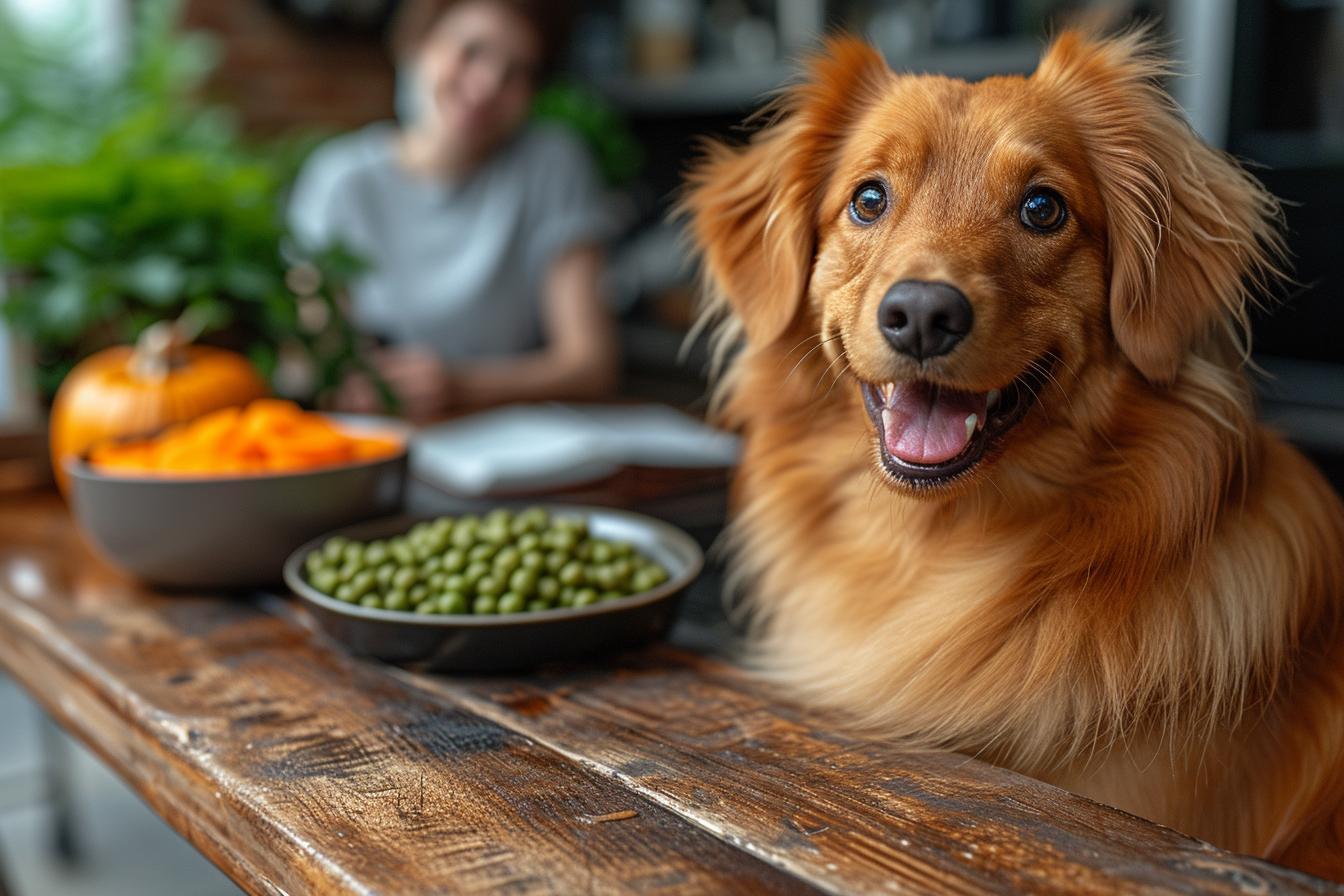Dear readers and dog lovers, we all know that the diet of our four-legged companions is the cornerstone of their health and happiness. But did you know that, just like for us, fiber plays an essential role in their diet? Today, we will discover how to cleverly incorporate fiber into your dog’s diet, whether it be from commercial sources or natural options such as pumpkin, green beans, and sweet potatoes. And because the health of our dogs is paramount, we will emphasize the importance of proceeding with caution and always consulting a veterinarian before modifying their diet. Get ready to take notes: let’s go on a gustatory and nutritious journey into canine nutrition!
The key role of fiber in canine diet
While they may seem inconsequential, fiber is essential for a balanced canine diet. Acting as regulators of the digestive system, fiber helps maintain the intestinal health of your animal and thus prevents certain problems such as constipation or diarrhea. Moreover, they help regulate blood glucose levels and contribute to a feeling of satiety after meals, which can be useful for overweight dogs.
Soluble fiber vs insoluble fiber: a necessary balance
There are two main types of fiber: soluble and insoluble. Soluble fiber dissolves in water and transforms into a gelatinous substance that helps slow digestion, beneficial for weight control and sugar regulation. Insoluble fiber, on the other hand, does not dissolve and mainly acts as an intestinal broom, improving transit and digestive health. A balance between the two types is therefore essential for optimal canine nutrition.
Fiber in commercial dog food
Commercial dog food already incorporates fiber into its formulas. However, the quantity and quality may vary. It is important to read labels to ensure that your dog is getting an adequate amount of fiber and that it comes from healthy sources. Ingredients such as beet pulp, whole grains, or potatoes are often used as sources of fiber in dog food.
How to enrich your dog’s diet with fiber
If you want to increase your pet’s fiber intake beyond what is provided in their regular diet, there are several natural options. Pumpkin, perfect for its high content of soluble fiber, can be cautiously added to the diet. Green beans and sweet potatoes are also fantastic alternatives to offer both a nutritious and tasty variety to your dog.
Precautions when introducing fiber
It is crucial to introduce fiber gradually into your dog’s diet to avoid gastrointestinal discomfort. Start with small amounts and increase them over several days or weeks. Observe your dog carefully for any changes in behavior or stools, and reduce the amount of fiber if necessary. The key is balance to avoid disrupting the digestive system.
A professional’s opinion is essential
Before making any changes to your dog’s diet, especially a significant change like adding fiber, it is essential to consult a veterinarian. The professional will guide you based on the specific needs of your dog, their breed, age, and health condition, while ensuring that the diet remains balanced and suitable for your companion.
In summary, integrating fiber into your dog’s diet will promote better digestive health and contribute to their overall well-being. Whether through fiber-rich commercial food or the addition of natural options, the important thing is to proceed with caution and under veterinary supervision. This way, not only are you offering your furry companion a gustatory feast, but you are also investing in their longevity and quality of life.







